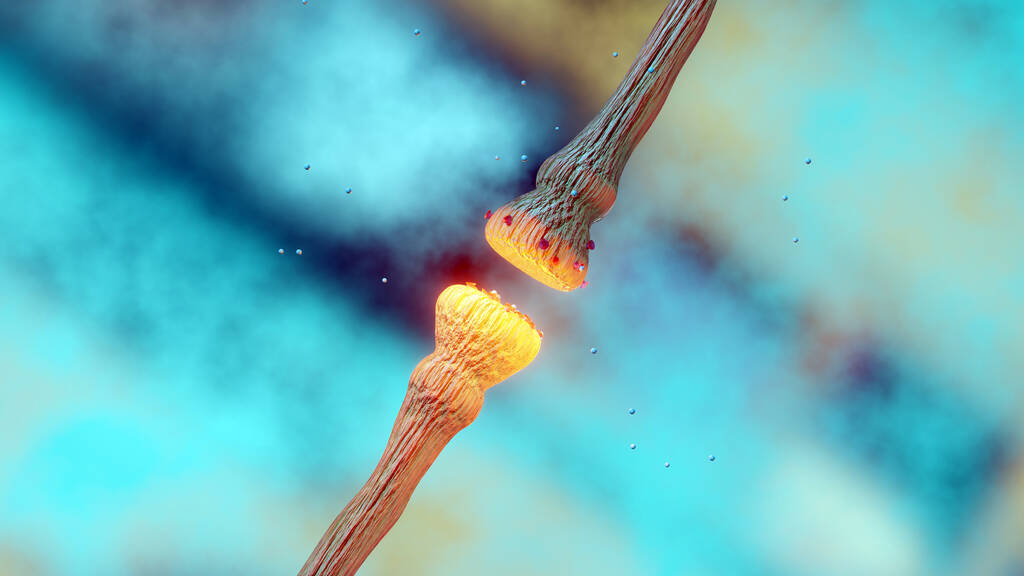Acetylcholine: Nootropic Explained
September 13, 2023

Welcome, dear reader, to the fascinating world of nootropics! Today, we're going to dive headfirst into the riveting realm of acetylcholine, a nootropic that's as fun to say as it is to learn about. So, buckle up, put on your thinking caps, and let's embark on this journey of discovery together!
Acetylcholine, often abbreviated as ACh, is a neurotransmitter that plays a crucial role in cognitive function. It's like the maestro of your brain, conducting the symphony of your thoughts, memory, and learning. But don't worry, we're not going to leave you hanging with just that. We're going to delve deep into the nitty-gritty of acetylcholine, exploring its functions, effects, and how it relates to nootropics.

The Role of Acetylcholine in the Brain
Imagine your brain as a bustling city, with messages zipping around like cars on a highway. Acetylcholine is like the traffic cop, directing these messages to where they need to go. It's involved in a variety of cognitive functions, from memory to attention, and even muscle movement.
Acetylcholine is particularly important in the formation of new memories. Think of it as the scribe of your brain, diligently noting down every new piece of information. Without it, your brain would be like a library without a librarian, with books (or in this case, memories) scattered haphazardly with no one to keep track of them.
Memory and Learning
When it comes to memory and learning, acetylcholine is the star of the show. It plays a crucial role in the encoding of new memories, the process by which new information is written into your brain's storage system. Without acetylcholine, this process would be like trying to write with a pen that's run out of ink.
But acetylcholine doesn't just help with memory formation. It's also involved in the retrieval of these memories. So, not only is acetylcholine the scribe that writes down your memories, but it's also the librarian that helps you find them when you need them.
Attention and Focus
Acetylcholine isn't just a one-trick pony, oh no! It's also involved in attention and focus. It's like the spotlight operator at a theater, shining a light on the actor (or in this case, the thought) that needs to be center stage.
By modulating the activity of certain neurons, acetylcholine helps to filter out irrelevant information and focus on what's important. Without it, your thoughts would be like a chaotic crowd, all shouting for attention at once.
Acetylcholine and Nootropics
Now that we've covered what acetylcholine does in the brain, let's move on to how it relates to nootropics. Nootropics, often referred to as "smart drugs," are substances that can enhance cognitive function. And guess what? Many of them work by influencing the levels of acetylcholine in the brain.
These nootropics can either increase the production of acetylcholine, prevent its breakdown, or enhance its effects. It's like giving the maestro of your brain a shiny new baton, a louder voice, or a more responsive orchestra.
Nootropics that Increase Acetylcholine Production
Some nootropics work by boosting the production of acetylcholine. They're like the factory workers, churning out more acetylcholine for your brain to use. Examples of these include choline supplements, which provide the raw materials for acetylcholine production.
By increasing the availability of choline, these supplements can help boost acetylcholine levels in the brain. It's like adding more fuel to the fire, allowing the flame of cognitive function to burn brighter and longer.
Nootropics that Prevent Acetylcholine Breakdown
Other nootropics work by preventing the breakdown of acetylcholine. They're like the bodyguards of acetylcholine, protecting it from the enzymes that want to break it down. Examples of these include Huperzine A and Donepezil.
By inhibiting the enzyme acetylcholinesterase, these nootropics can increase the levels of acetylcholine in the brain. It's like putting a lock on the library door, preventing the books (or in this case, the acetylcholine molecules) from being taken away.
Effects of Acetylcholine Nootropics
So, what happens when you boost your brain's acetylcholine levels with nootropics? Well, the effects can vary from person to person, but generally, they can lead to improvements in memory, learning, attention, and focus.
It's like upgrading your brain's hardware, allowing it to process information more efficiently and effectively. But remember, while these nootropics can enhance cognitive function, they're not a magic bullet. They're just one piece of the puzzle, along with a healthy diet, regular exercise, and good sleep habits.
Memory Enhancement
As we've discussed earlier, acetylcholine plays a crucial role in memory formation and retrieval. So, it's no surprise that boosting acetylcholine levels with nootropics can lead to improvements in memory.
Users of these nootropics often report being able to remember information more easily, recall memories more vividly, and even experience improved spatial memory. It's like giving your brain's librarian a pair of glasses, allowing them to see the books (or in this case, the memories) more clearly.
Improved Focus and Attention
Acetylcholine nootropics can also lead to improvements in focus and attention. Users often report being able to concentrate better, ignore distractions more easily, and stay focused on tasks for longer periods of time.
It's like giving your brain's spotlight operator a more powerful light, allowing them to shine a brighter and more focused beam on the thought that needs to be center stage.

Conclusion
And there you have it, dear reader! A deep dive into the world of acetylcholine and nootropics. We've explored the role of acetylcholine in the brain, how it relates to nootropics, and the effects of acetylcholine nootropics.
So, the next time you're trying to remember where you left your keys, or struggling to focus on a task, remember the mighty acetylcholine. And who knows? Maybe a nootropic could be just what your brain needs to hit the high notes of cognitive function.

 Back to Blog
Back to Blog